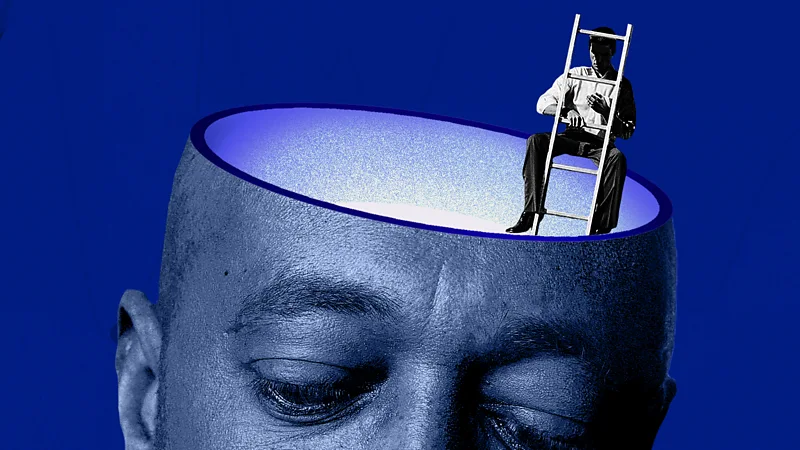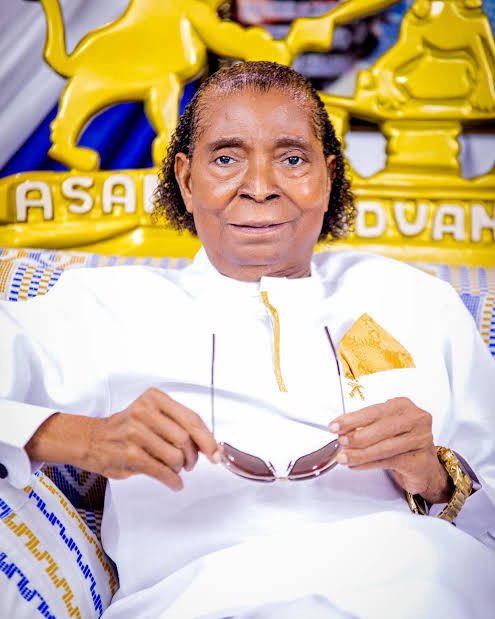People & Lifestyle
Why Money And Power Affects Male Self-Esteem

What we earn can affect our mental wellbeing, especially when we compare ourselves to those around us – and it can negatively influence male mental health.
“It stings your pride a little bit that your wife’s the one out making all the money,” said Dave, of his status as a stay-at-home dad.
“I’m, you know, a guy’s guy… you tell them you stay home, and… they think you’re some feminine dude,” said Tom. Both were participants in an in-depth research study where both men and women were interviewed about the impact of the women in the relationships being the breadwinners.
Another, Brendon, had good reason to feel judged: family members labelled him “the house bitch”.
These are but three examples of the judgement experienced by men who don’t have jobs outside the home, and whose female partners are the primary earners.
In the study, the men said they felt judged partly because it’s long been assumed that men are the main breadwinners in society. However, an increasing number of women are outearning their male partners, and this gradual rise of female breadwinners is revealing that who earns the money has lasting and influential impacts on power dynamics both at home, and in wider society.
A key reason these changing family dynamics are so influential is because money is so closely tied to power. When men aren’t the highest earners in their household – but are expected to be by some sections of society – it can lead them to feel disempowered, decreasing mental wellbeing and even increasing the likelihood of divorce.
When men are out of work, they have been shown to have higher rates of depression compared to out-of-work women
Overall, men still tend to outearn women and among married couples with children, and women do more childcare and housework than men, a stubborn discrepancy found globally. In part this is thought to be due to gender expectations, but in some cases it may also reflect an economic necessity where the higher earner’s career tends to be prioritised, so women are more likely to step back into part-time, flexible roles.
Despite the increase in breadwinning women, gender attitudes to paid work and roles at home have been slower to change. Even if women are the higher earners, they still do more housework and childcare than lower-earning male partners. And while among some age groups there’s been an increase in support for gender equality, men still show lower satisfaction if they are out-earned.
An increasing body of research shows that it can affect a man’s self-esteem and happiness if their female partner earns more than them. But how serious is the problem really? And what can be done to help men adjust to their new reality?
It’s a little taboo for men to even talk about the impact of their female partner becoming the breadwinner. They might feel supportive of their partner’s career, whilst at the same time feeling that they aren’t fulfilling their role as “breadwinners” because many outdated assumptions of masculinity remain prevalent.
This is especially true when men inadvertently become stay-at-home fathers due to job loss or relocation, rather than choice. Harry Bunton, an ex-consultant and now rising social media influencer based in Sydney, Australia, recently lost his job. He posted on social media afterwards to thousands that his “values as a man, husband and father” were impacted.
“It makes sense to me why there’s such a high rate of depression, and worse, in that population. When things don’t go to plan it can be really devastating and can really challenge your ideas of what it means to be a man,” Bunton wrote. “My hope is that sharing this story is that people can identify with it and their value isn’t predicated on events like this… I feel almost empowered to be the dad that I want to be.”

While Bunton took a positive approach to the change in his lifestyle, he exemplifies that how much a man earns relative to his partner can affect their mental wellbeing. For instance, one recent study of heterosexual couples in Sweden looked at 10 years of earnings data as well as mental health diagnoses to look for patterns. The researchers found that at the point when wives began to outearn their male partners, there was an uptick in mental health diagnoses among men. While there was an increase of up to 8% in mental health diagnoses for all participants whose partners earned more – including women – there was a more pronounced rise of up to 11% for men overall.
While writing my upcoming book, Breadwinners, I spoke with Demid Getik, an assistant professor in the Economics Department at Durham University who led the study, to find out more. He told me that while we may no longer hear it explicitly stated that the man should earn more, these expectations are still highly prevalent. The increase in mental health diagnoses in men whose partner has begun earning more, says Getik, could also be an indication that these couples are showing decreased relationship satisfaction, though his data did not specifically assess this.
Meanwhile other research has shown that the husbands of higher-earning women are more likely to cheat, which the authors say may be a way for them to reassert their masculine identity – one which has been threatened by their breadwinning wives.
Research also points to the idea that the pressure on men to be providers is a contributing factor to their wellbeing. When men are out of work, they have been shown to have higher rates of depression compared to out-of-work women. One possible explanation is women tend to have stronger social ties outside of work compared to men. Stay-at-home dads are therefore often more isolated than stay-at-home mums.
When it comes to understanding why wellbeing is so closely tied with what we earn, it helps to correct a misconception. While female breadwinners are often stereotyped as high-powered and career driven, in many couples with female breadwinners, it’s a result of the man losing his job – leading to economic stress. That’s especially prevalent given that research shows that in couples where only the woman is working, the average household wage is lower compared to couples with breadwinning men, in line with the gender pay gap. This led Helen Kowalewska, an assistant professor in the Department of Social Policy and Science at Bath University, and her team to suggest in a research paper that “most countries are not working hard enough to compensate for the female breadwinner earnings penalty”. In this situation, where the entire household ends up with a lower income, she argues that welfare systems should be doing more to help.
Not all bad
However, when men step back from paid work it can also have positive impacts on the family. In the UK, fathers are spending more time with children than in the past in general, and research shows that stay-at-home dads tend to spend more quality time with their children. As can be expected, stay-at-home dads do more childcare than breadwinner mums or dads. But they typically don’t increase their share of the house work – it’s only roughly equal in this scenario. In all other set-ups, women do more, according to a 2023 Pew report of US data.
Despite many countries having minimal paternity leave available, when fathers do take paternity leave, marital satisfaction can increase, as can father involvement in childcare – even when fathers return to work. Dads who take parental leave show greater bonds with their children, who will, in turn be more likely to grow up witnessing a more equitable division of labour. It follows that how parents divide housework will go on to shape what their children expect later in life, too. A more equitable division of labour at home also helps women pursue careers more easily and therefore increase their earning potential.
But the benefits to women of these societal shifts go further. In a study looking at Mexican households, a team found that the more work opportunities that women have outside the home, the more power they have in other domains, too. In other words, they gain more bargaining power over larger financial decisions. This tallies with other research. If a woman is empowered financially where historically she has been disempowered, naturally it can have a positive impact on her earning power, her autonomy and her career.
When norms are changed and it becomes routine for men to step back from work for family commitments, it can increase the wellbeing of the whole family. Swedish data for instance shows that when paternity leave was first introduced and fathers were given a so-called “daddy month” in 1995, the initial cohort of men who took this leave experienced reduced marital stability and the likelihood of separation increased. When the policy increased the amount of leave available to two months in 2002, this was no longer the case. Today, Swedish parents have three months available each in a use-it-or-lose it policy, and the rates of uptake for dads, as you would expect, are high. In fact, it’s taboo for dads to skip this allotted parental leave. (Read more about this from the BBC.)
While there is a greater awareness of the importance of empowering women today, attitudes remain polarised. A recent Ipsos survey by King’s College London, found that the youngest generation polled – Gen Z, who were aged between 18 and 28 at the time – were the most divided. A global poll of almost 24,000 individuals found that young men were more likely to agree with the statement that a father who stays home to look after his children is “less of a man“. While 28% of Gen Z men agreed to this, only 19% of Gen Z women did. In all other age groups, the figure was lower. When asked to respond to the statement: “Men are being expected to do too much to support equality” 60% of Gen Z men agreed, compared to 38% of Gen Z women. Among baby boomers this figure dropped to 44% and 31% respectively.
Heejung Chung, professor of work and employment at King’s College London and one of the report’s authors, told me that one reason these attitudes are creeping in is because young women are now more likely to be university educated than young men. Perhaps as a consequence, she says, women in their early twenties earn slightly more than men. For the first time, there are now more female doctors than male doctors in the UK.

“We do see a lot of signs of gender parity in certain areas,” Chung explains, and these younger individuals aren’t perhaps experiencing the wider inequality that many women still face today – leading to a view that some boys “are falling behind.”
Another reason for this division in attitudes towards equality could be that ideas around what masculinity represents are changing, but not everywhere. Rosie Campbell, a professor of politics also at King’s College London, has authored research which found a growing divide in attitudes about masculinity, particularly among the younger generation. For example, men and women disagree on things like whether it’s harder to be a man than a woman today. She explains that “feminism is supposed to be about gender equality for men and women. Of course, it’s got the term feminine in the title and that can sound quite exclusionary”.
Campbell therefore advocates for more open conversations with young people, especially at school, about what the terms feminism and masculinity mean. “We need to think more about how we communicate to young men about what it is to be a man today, and what kind of role models they have,” she says. This is especially important when considering the increasing misogynistic influences online, as portrayed recently on the Netflix drama Adolescence. (Read more from the BBC about the best TV shows of 2025 so far.)
Despite these findings, Chung and her colleagues’ latest survey shows that most agree that achieving gender equality matters. There is also a small but growing body of research that shows men are changing their understanding of masculinity and fatherhood, to one that involves caring, empathy and other softer skills that are typically deemed feminine – as opposed to assuming manhood means earning more to look after your family. This has since been dubbed “caring masculinities“.
“It’s not just about men doing that fun stuff that’s really rewarded. It’s about them getting into those kinds of messy, gritty parts of care-work”, says Karla Elliott, a gender scholar from Monash University in Melbourne, Australia. Her work shows that taking on more of these practical caring tasks leads to a more nurturing disposition. Elliott explains that for this new conception of masculinity to spread, as well as taking on more care, men also need to disavow domination and inequality.
Some researchers are arguing that policies that increase paternity leave – and specifically earmark leave for men – can help them to increase their focus on care. This could in turn put less onus on men as providers and help women to earn more.
More like this:
• The gender biases that shape our brains
• Indigenous mothers are being ‘failed’ in Australia
• How an objective measure of pain could counter bias in medicine
Policy changes can take time to filter though, so one solution we can all enact is to voice positive messages about our changing expectation of what our roles in society are. “There’s a big opportunity here: if men are feeling that their self-esteem is impacted by their partner’s earning, that’s a great chance for men to reflect on why they’re feeling that way, and potentially challenge some of the ingrained ideals about gender roles,” says Elliott.
Given that female breadwinners are increasing in number, with time this economic shift could become normalised, meaning that among couples with children, men will need to adapt accordingly by increasing flexible working and caregiving. This will in turn help empower their higher-earning wives to pursue their careers.
And while it will take time, these changing attitudes could pave the way to minimising the male breadwinner, female homemaker expectation, increasing relationship satisfaction and creating a healthier power balance in the process.
* Melissa Hogenboom is a BBC health and science journalist and author of the upcoming book Breadwinners (2025) and The Motherhood Complex
People & Lifestyle
From Bekwai To The World: The Biography Of Apostle Kwadwo Safo, The Kristo Asafo Founder And Kantanka Automobile Innovator

Early Life And Education
Known as the “Star of Africa,” Apostle Dr. Kwadwo Safo Kantanka is a man whose life remarkably combines philanthropy, invention, and religion. He was born on August 26, 1948, in Bekwai, Ghana’s Ashanti Region, to petty merchant Madam Akosua Amoanimaa and farmer Opanin Yaw Safo. He gained the humility and curiosity that would ultimately determine his fate from his humble origins.
Kwadwo Safo attended the Ghana Technical Works Institute in Kumasi to pursue technical training following his completion of elementary and secondary school. He worked for companies including VALCO, West Africa Metals, and the French Africa Company in his early years as a welder and mechanic. He gained a solid foundation in engineering and mechanics from these experiences, but his life quickly took a different turn.


READ ALSO: BREAKING: Apostle Kwadwo Safo Confirmed Dead
Ministry And The Kristo Asafo Mission
Kwadwo Safo was called by God to devote his life to gospel preaching in 1969. On February 3, 1971, two years later, he established the Kristo Asafo Mission in Accra. In Accra New Town, what started out as a tiny prayer group swiftly expanded into a vibrant Christian ministry.
For fusing spirituality with real-world empowerment, Kristo Asafo gained notoriety. Apostle Safo placed a strong emphasis on discipline, independence, and applying one’s faith to day-to-day activities. The church grew throughout Ghana and even reached Ghanaian communities overseas under his direction. He was more than just a preacher to his followers. He served as a mentor who pushed them to further their spiritual development while also pursuing education, skills, and entrepreneurship.

Innovations And Industry
The vision of Apostle Safo went much beyond the pulpit. He started creating local car prototypes in the 1990s in an effort to demonstrate Ghana’s ability to compete on a worldwide scale. In 1998, his business, Kantanka Automobile, manufactured its first saloon automobile. Later models, such as the Onantefo series, demonstrated robustness, contemporary style, and regional inventiveness. Kantanka Automobile is a great representation of Ghanaian ingenuity today.
However, his inventiveness extended beyond cars. Additionally, Apostle Safo has created and produced locally manufactured robotics, television sets, sound systems, and even military-grade equipment. His creations demonstrate his conviction that Africans can use their own skills and resources to address their own problems.
Education And Human Development
Apostle Safo founded the Apostle Safo School of Arts and Sciences (ASSAS) in Awoshie, Greater Accra, because he believed that education was the key to the advancement of the country. The school fosters the development of young brains into leaders and innovators by providing courses in science, business, visual arts, and home economics. His legacy of developing ability via knowledge and skills has been carried on by the numerous successful careers of his students and protégés.



Philanthropy And Social Impact
An integral part of Apostle Safo’s work has always been philanthropy. On a regular basis, usually around his birthday, he gives money, food, and clothing to widows, orphans, and disadvantaged groups. He received a great deal of praise for his August 2024 payment of GH₵42,000 toward the medical expenditures of 14 female patients at the Komfo Anokye Teaching Hospital. Because of his scientific endeavors and social interventions, he has become a father figure to many.

Recognition And Legacy
The accomplishments of Apostle Safo have received recognition on a national and worldwide level. In the UK, he was given the GUBA Innovative Pioneer Award in 2017. In recognition of his contributions to science and engineering, he has also received academic distinctions, such as the title of Emeritus Professor.
Nevertheless, he has publicly bemoaned the fact that his efforts are sometimes underestimated in Ghana in spite of these honors. He has attacked the tendency to favor imported items over domestically produced ones, which hurts homegrown businesses. But his determination is unwavering. He remains committed to his goal of an independent Ghana, which drives his innovation, preaching, and charitable endeavors.


Conclusion
Apostle Kwadwo Safo is not just an inventor or a preacher. He is a trailblazing intellectual who has demonstrated how compassion, science, and faith can all work together to change society. He has broken down barriers and changed the lives of many people, starting from modest beginnings in Bekwai and going on to lead a church, an automobile firm, and an educational institution. His tale serves as a reminder to Ghanaians and all Africans that greatness starts with a vision and is fostered by tenacity, imagination, and an unwavering faith in God.
People & Lifestyle
The Fascinating History Of Wigs And Hair Extensions

Wigs and hair extensions may look like modern beauty essentials, but their roots go back thousands of years. Across cultures and generations, they have been worn for protection, style, identity, and even spirituality. Their story shows us how beauty and tradition are deeply connected, constantly evolving with time.
Ancient Egypt, Where It All Began
The earliest records of wigs date back to Ancient Egypt around 2700 BC. Egyptians shaved their heads for hygiene, but wigs were used to protect against the sun and add a touch of elegance. Wealthy citizens wore wigs decorated with beads, gold, and oils, while simpler versions were worn by the less privileged. This trend spread to Ancient Greece and Rome, where wigs became a symbol of beauty and social status.



Royal Courts And European Fashion
In the 16th century, wigs returned to the spotlight when Queen Elizabeth I of England popularized them at court. By the 17th century, King Louis XIV of France introduced the large powdered wig, which quickly became fashionable across Europe. These wigs were not only about appearance, they carried political and social weight. Judges, lawyers, and politicians wore them as symbols of authority, and in some countries this practice continues today.


From Victorian Elegance To Modern Glamour
By the 19th century, wigs became less common, but hair extensions rose in popularity. Victorian women used hairpieces to achieve fuller hairstyles. In the 20th century, wigs found a place in theater and film, helping performers transform instantly. The 1960s and 1970s saw wigs move into mainstream fashion, with celebrities embracing them as tools of self-expression. Synthetic fibers made wigs affordable and widely accessible, allowing more people to experiment with new looks.


Beyond Fashion And Style
Wigs and extensions have always held cultural and spiritual importance. In Orthodox Judaism, married women wear wigs, known as sheitels, for modesty. In many African cultures, wigs and braids are not just hairstyles but powerful symbols of heritage, age, and social standing. They are often used during traditional ceremonies to represent ancestry, identity, and pride.


Technology, Media, And A Global Industry
Today, wigs and extensions are more advanced and natural-looking than ever. Lace-front wigs, clip-ins, and high-quality synthetic fibers allow for effortless transformations. Social media and celebrity culture have also fueled demand, turning wigs into a billion-dollar global industry. However, discussions around ethical sourcing of human hair continue, raising questions about fairness and sustainability in the beauty market.



Wigs In Health And Confidence
Beyond fashion and tradition, wigs play a vital role in healthcare. Many people experiencing hair loss due to medical conditions such as alopecia or chemotherapy treatments rely on wigs to restore confidence and a sense of normalcy. In this way, wigs are not just about beauty, they provide emotional support and dignity during challenging times. The growing variety of natural-looking options ensures that individuals can find styles that truly reflect who they are.


The Future Of Hair Innovation
Looking ahead, technology will continue to shape the wig and extension industry. From 3D-printed wigs to eco-friendly synthetic fibers, innovation is making products more sustainable and personalized. Designers are also blending cultural traditions with modern fashion to create new trends that celebrate both heritage and creativity. The story of wigs and extensions is far from over, and the next chapter promises even more exciting transformations.


A Timeless Story Of Reinvention
From the deserts of Ancient Egypt to fashion runways and online platforms, wigs and hair extensions have never gone out of style. They have adapted to every era, reflecting beauty standards, cultural traditions, and personal expression. Their history reminds us that hair is more than appearance, it is identity, heritage, and creativity woven together.


People & Lifestyle
The Surprising History Of High Heels And Their Origins

When people think of high heels today, the image that often comes to mind is one of women’s fashion, glamour, and elegance. Yet the history of high heels is far more complex. In fact, these shoes were first created for men, serving practical, cultural, and political purposes long before they became linked to femininity.
The earliest evidence of high-heeled footwear dates back to 10th-century Persia. Cavalry soldiers wore shoes with elevated heels to keep their feet secure in stirrups while riding. The design was not about style but survival, giving riders better balance and control in battle. This functional footwear later traveled to Europe, where it quickly acquired new cultural meaning.

By the 16th and 17th centuries, European men had adopted high heels as a symbol of wealth, masculinity, and social rank. Height was strongly associated with authority, and heels offered a way to look taller and more imposing. King Louis XIV of France, famously known as the “Sun King,” wore elaborately decorated red heels, a privilege he restricted to his court as a sign of power and exclusivity. Heels became an essential part of noble fashion, with their height directly reflecting social standing.

High heels also carried a sense of gender fluidity in their early history. Both men and women wore them in European courts, though the designs differed slightly. While men’s heels were often heavier and sturdier, women’s were more slender and decorative. They were seen less as feminine accessories and more as unifying symbols of wealth and privilege.

The shift came during the 18th century, when changing ideas about gender roles influenced fashion. Men began moving toward more practical and understated clothing, abandoning flamboyant garments and footwear. Women, on the other hand, retained high heels as markers of elegance and sophistication. Over time, this association deepened, and by the 19th century, high heels were firmly considered women’s fashion.

Today, high heels remain one of the most iconic and controversial items of clothing. While many wear them for style, beauty, or professionalism, they have also sparked debates about comfort, health, and gender expectations. Yet their surprising history reminds us that what we now see as a symbol of femininity was once created for war, adopted by kings, and used as a proud marker of masculinity and power.

-

 News5 months ago
News5 months agoGH¢49m Spyware Scandal: Ex-NSB Boss’s Claims Lack Credibility – Bright Simons
-

 Opinion5 months ago
Opinion5 months agoA LETTER TO GES
-

 Showbiz5 months ago
Showbiz5 months agoBogo Blay – Woman (Produced By FimFim)
-

 Showbiz5 months ago
Showbiz5 months agoKofi Kinaata Honoured with “Youth in Entertainment” Award at 2025 Millennium Excellence Awards
-

 Showbiz5 months ago
Showbiz5 months agoWebz – Odo | MP3 Download
-

 Sports5 months ago
Sports5 months agoEl Clásico Thriller: Barcelona Edges Real Madrid 4–3 in Seven-Goal Spectacle
-

 News5 months ago
News5 months ago‘Not Chosen by Merit’ – Ghanaian Prophet Predicts Short Papacy for Pope Leo XIV
-

 People & Lifestyle5 months ago
People & Lifestyle5 months agoThe differences between ‘I love you’ and ‘I’m in love with you’




















































